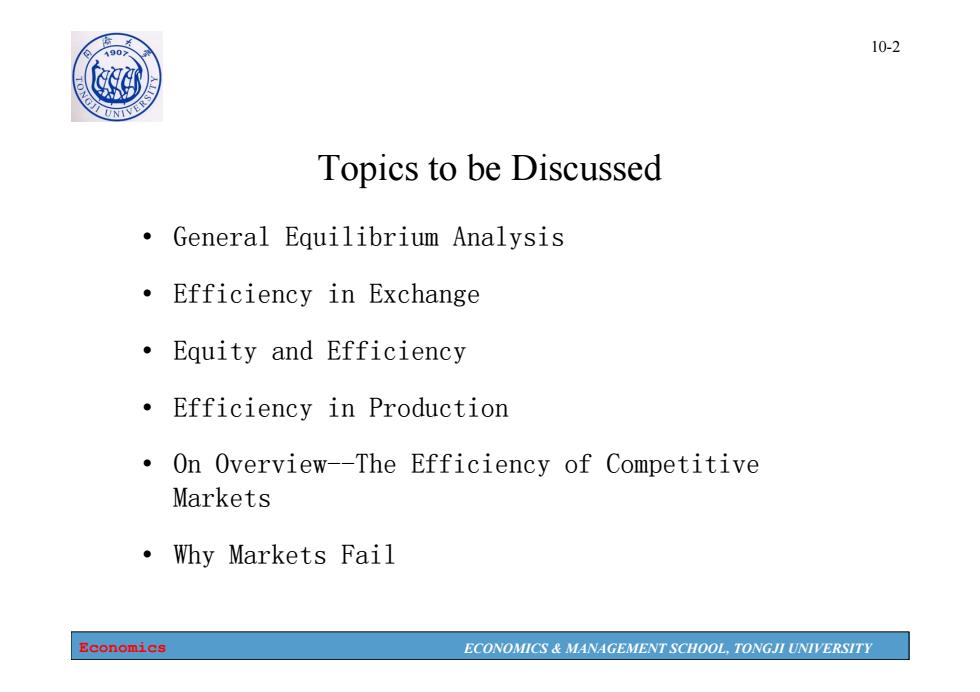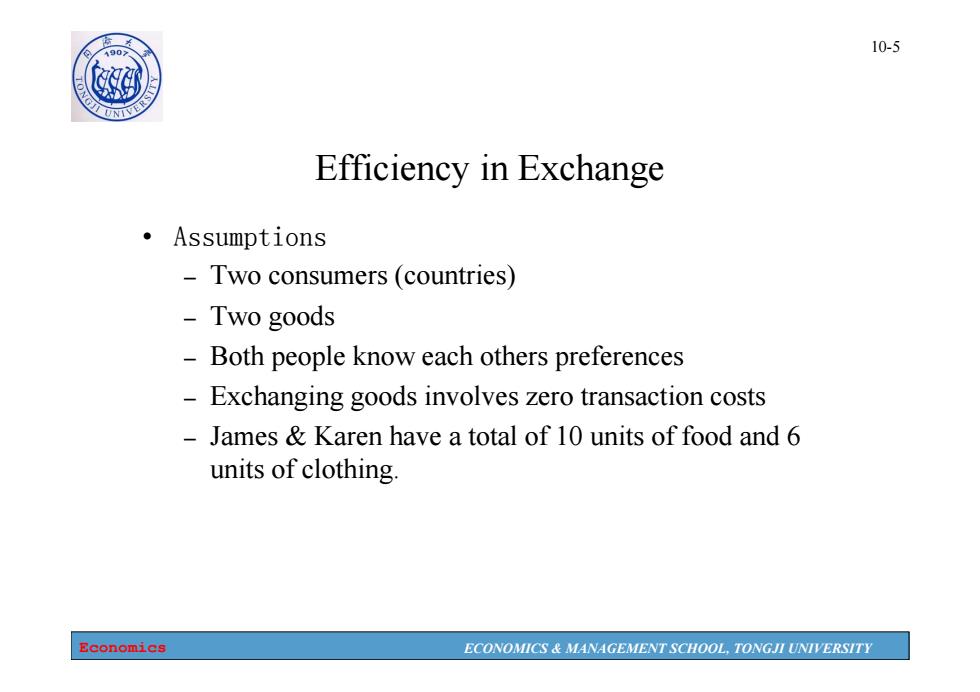
1907 Ch07 General Equilibrium and Economic Efficiency Economics ECONOMICS MANAGEMENT SCHOOL,TONGJI UNIVERSITY
Economics ECONOMICS & MANAGEMENT SCHOOL, TONGJI UNIVERSITY Ch07 General Equilibrium and Economic Efficiency

40 10-2 © Topics to be Discussed General Equilibrium Analysis Efficiency in Exchange Equity and Efficiency Efficiency in Production On Overview--The Efficiency of Competitive Markets ·Why Markets Fail Economics ECONOMICS MANAGEMENT SCHOOL,TONGJI UNIVERSITY
Economics ECONOMICS & MANAGEMENT SCHOOL, TONGJI UNIVERSITY 10-2 Topics to be Discussed • General Equilibrium Analysis • Efficiency in Exchange • Equity and Efficiency • Efficiency in Production • On Overview--The Efficiency of Competitive Markets • Why Markets Fail

190 10-3 7.1 General Equilibrium Analysis Partial equilibrium analysis presumes that activity in one market is independent of other markets. General equilibrium analysis determines the prices and quantity in all markets simultaneously and takes the feedback effect into account. A feedback effect is a price or quantity adjustment in one market caused by price and quantity adjustments in related markets. Economics ECONOMICS MANAGEMENT SCHOOL,TONGJI UNIVERSITY
Economics ECONOMICS & MANAGEMENT SCHOOL, TONGJI UNIVERSITY 10-3 7.1 General Equilibrium Analysis • Partial equilibrium analysis presumes that activity in one market is independent of other markets. • General equilibrium analysis determines the prices and quantity in all markets simultaneously and takes the feedback effect into account. • A feedback effect is a price or quantity adjustment in one market caused by price and quantity adjustments in related markets

10-4 N 7.2 Efficiency in Exchange Exchange increases efficiency until no one can be made better off without making someone else worse off (Pareto efficiency). The Advantages of Trade Trade between two parties is mutually beneficial. Economics ECONOMICS MANAGEMENT SCHOOL,TONGJI UNIVERSITY
Economics ECONOMICS & MANAGEMENT SCHOOL, TONGJI UNIVERSITY 10-4 7.2 Efficiency in Exchange • Exchange increases efficiency until no one can be made better off without making someone else worse off (Pareto efficiency). • The Advantages of Trade – Trade between two parties is mutually beneficial

1907 10-5 Efficiency in Exchange ·Assumptions Two consumers(countries) Two goods Both people know each others preferences Exchanging goods involves zero transaction costs James Karen have a total of 10 units of food and 6 units of clothing Economics ECONOMICS MANAGEMENT SCHOOL,TONGJI UNIVERSITY
Economics ECONOMICS & MANAGEMENT SCHOOL, TONGJI UNIVERSITY 10-5 Efficiency in Exchange • Assumptions – Two consumers (countries) – Two goods – Both people know each others preferences – Exchanging goods involves zero transaction costs – James & Karen have a total of 10 units of food and 6 units of clothing